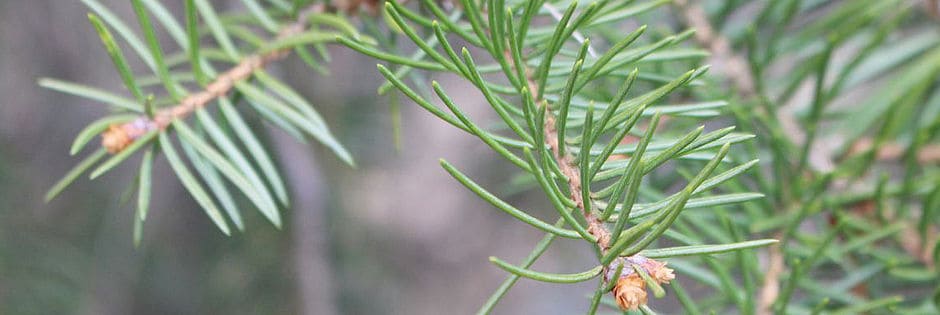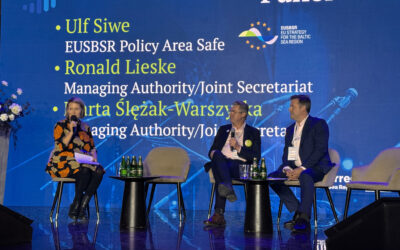Innovations are always driven by demand. However, achieving an effective management and implementation of innovative solutions as part of regions’ smart specialisation strategies are not as simple as that. They require support from the public sector, strong backup in research and enterprises ready to take on the initiative. But how to ensure such favourable conditions for innovations, taking bio-, circular and digital economy as an example? And what if to apply it to a wider transnational context of the Baltic Sea region? BSR Stars S3, one of Interreg Baltic Sea Region’s projects, is proposing practical methods to stimulate the bio-, circular- and digital economy in the Baltic Sea region.
Bio-/circular business models
Circular economy is one of the emerging answers to the ever-growing consumption and the accompanying waste production. The idea of “closing the loop” of a product lifecycle through recycling and re-use has also been highlighted by the European Commission as being advantageous for both the environment and the economy. BSR Stars S3, an innovation project co-financed by Interreg Baltic Sea Region, explores the potential of regional smart specialisation in bio- and circular economy for the development and growth of the Baltic Sea region. It focuses on establishing reliable networks among business, research and public sectors to effectively plan and drive such innovations as well as to share the know-how.
BSR Stars S3 takes the concept of industrial symbiosis as a starting point for a self-perpetuating wheel. Just like in a natural ecosystem, companies engaging in industrial symbiosis make use of – or circulate – surplus resources or waste from other companies to achieve mutual benefits. Tested on a smaller scale in some clean industrial parks, the circular economy approach could be developed further across the Baltic Sea region. Johanna Leino, Development Director of the Lead Partner Baltic Institute of Finland, explains that there are, however, some prerequisites to make it work. These include active involvement of public and research sectors, transnational exchange of expertise as well as transnational relations built across business, research and public sectors. “Internationalisation is the key,” adds Trine Schmidt, Project Officer at the Nordic Council of Ministers. “Instead of being innovative at home, we need businesses to meet other businesses and get cross borders with their innovations.”
Smart activation of public sector
A smart specialisation accelerator camp is one of the tools the BSR Stars S3 project will use to engage the public sector. Transnational by default, the camps will gather representatives from regions around the Baltic Sea as well as relevant experts from research and business sectors. The main idea of common sessions will be to exchange experiences in the field of bio- and circular economy, and to look for possible solutions to concrete challenges, e.g. related to industrial symbiosis or know-how needs previously identified in regions. In parallel, circular business models will be elaborated. Sharing such models among the regions will guide them on how to establish and develop their clean industrial parks and other entities that follow the rules of circular economy.
With an online innovation ecosystem management tool piloted in Tampere, Finland, BSR Stars S3 hopes to create a reference system for regional authorities to monitor and strategically support innovations in the bio- and circular economy in the region. The focus is on monitoring the status and analysing variables that influence innovations. In more practical terms, regional authorities would with this tool be able to verify whether funds allocated to Research & Development (R&D) lead to the creation of new companies in the region or determine the factors that increase a company’s potential to go beyond a regional reach. On top of that, the tool will help shape recommendations on how to manage innovations effectively. This tool and a new kind of approach to innovation ecosystem management will, in turn, be presented to decision makers on regional as well as national and EU level.
Smart business methods
With the need for proper research support for businesses in mind, business-research-public matchmaking events in the field of bio- and circular economy will be organised. Hosted by the regions involved in the project and tailored to specific regional needs, the matchmaking events will help business and research professionals meet and establish long-lasting business-research partnerships.
Based on partnerships established during the matchmaking events, the business development organisation partners of the project will provide expertise and advise for companies including selected areas of interest from countries outside the project’s geographical scope. The essence of this will be to share knowledge as well as setting transnational good practices and models that can later be picked up and passed on by the Enterprise Europe Network some project partners are involved in.
In addition, BSR Stars S3 will conduct bio-/circular and digital testbed mappings to enhance the access to test and research facilities across the Baltic Sea Region.
Way ahead
BSR Stars S3 is much about bringing business, research and public actors together in the very innovative field of bio- and circular economy. The project addresses some of the most interesting trends in bio- and circular economy, within a transnational and cross-sectoral context, and attempts to facilitate the development of a global competitive advantage for the Baltic Sea Region based on these trends. Project partners from Denmark, Lithuania, Sweden, Finland and Norway will set up methods and models to guide others on how to effectively implement smart specialisation strategies on regional and national levels. This particular focus of BSR Stars S3 makes the project very inspiring to follow.
Related files
Related news
15 Dec 2015
Eco-design products to minimise negative environmental impact







